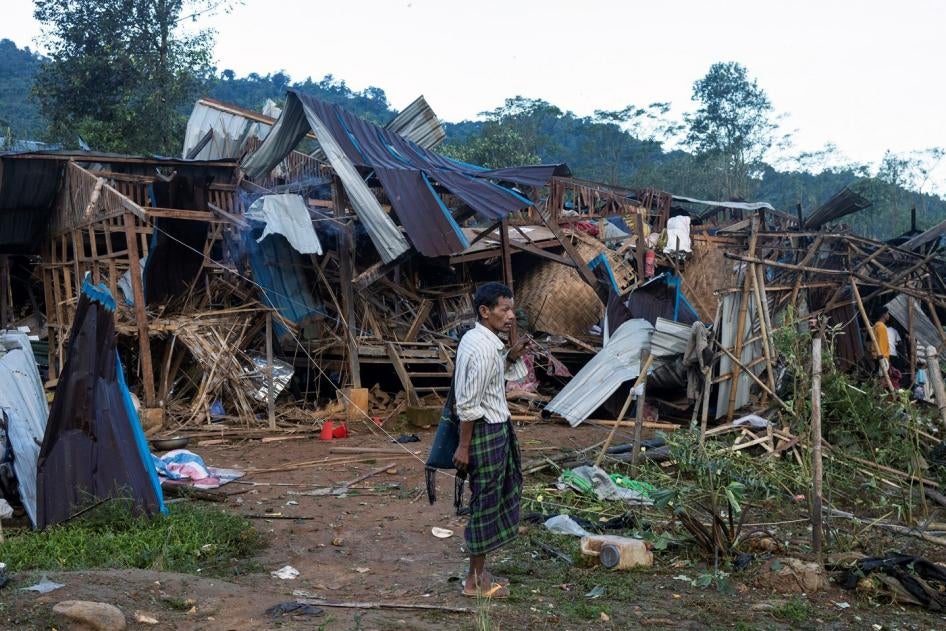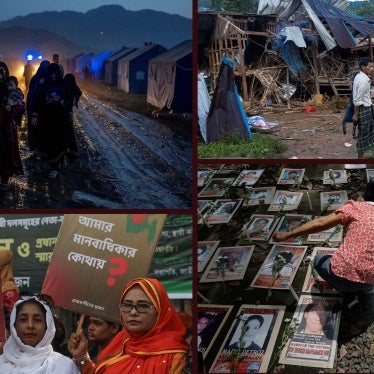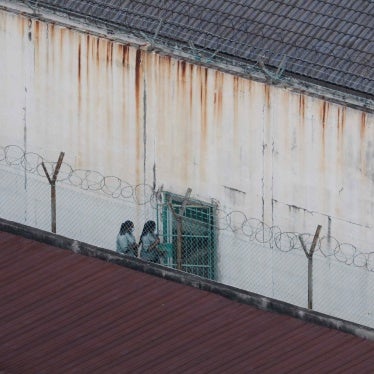(Bangkok) – Myanmar’s military junta in 2023 increasingly carried out unlawful airstrikes against villages with ethnic minorities and anti-coup residents, Human Rights Watch said today in its World Report 2024. The security forces committed mass killings, enforced disappearances, torture, rape and other sexual violence, and arbitrary arrests and detention.
“The junta’s increased unlawful airstrikes exemplify the deteriorating human rights situation in Myanmar since the 2021 coup,” said Elaine Pearson, Asia director at Human Rights Watch. “Governments should tighten sanctions on the military, and urge the UN Security Council to impose an arms embargo on Myanmar and refer the situation to the International Criminal Court.”
In the 740-page World Report 2024, its 34th edition, Human Rights Watch reviews human rights practices in more than 100 countries. In her introductory essay, Executive Director Tirana Hassan says that 2023 was a consequential year not only for human rights suppression and wartime atrocities but also for selective government outrage and transactional diplomacy that carried profound costs for the rights of those not in on the deal. But she says there were also signs of hope, showing the possibility of a different path, and calls on governments to consistently uphold their human rights obligations.
In April, Myanmar’s military used a thermobaric weapon – a fuel-air explosive – in Sagaing Region that killed more than 160 civilians. In October, the military attacked a village hosting hundreds of displaced civilians in Kachin State, killing 28 civilians, including 11 children. And since the February 2021 coup, the military has used domestically produced cluster munitions, which are inherently indiscriminate, in populated areas.
The junta blocked desperately needed aid from reaching millions of people in conflict areas, in violation of international humanitarian law. More than two million people have been internally displaced, with many fleeing air and ground attacks multiple times. In October, tens of thousands of people fled clashes between the military and an alliance of ethnic armed groups and anti-junta People’s Defense Forces in northern Shan State.
In May, Cyclone Mocha, one of two strongest tropical cyclones ever recorded in the North Indian Ocean, left a trail of destruction affecting nearly eight million people across Chin, Kachin, and Rakhine States, and Sagaing and Magway Regions. Junta authorities refused to authorize travel and visas for aid workers, release urgent supplies from customs and warehouses, or relax onerous and unnecessary restrictions on lifesaving assistance.
UN Security Council measures against Myanmar authorities have long been stymied by Russia and China, both of which have veto power. Other governments should find ways to expand their own national sanctions to press the junta to change course, Human Rights Watch said. UN member countries should comply with a UN General Assembly 2021 resolution, which urged governments “to prevent the flow of arms into Myanmar.”
Key governments such as the United States expanded sanctions, including on two Myanmar banks used by the junta to purchase weapons and military equipment. In August, the US issued a directive prohibiting financial transactions involving the military-owned Myanmar Oil and Gas Enterprise (MOGE). But the European Union, US, Canada, and the United Kingdom should better coordinate and enforce their actions while seeking compliance by Singapore, Thailand and other neighbors of Myanmar.
The International Criminal Court (ICC) currently has an investigation into crimes related to the 2017 ethnic cleansing campaign against the Rohingya, but it is limited in scope. An ICC referral remains critical to address the full range of atrocity crimes in Myanmar. Separately, the UN Independent Investigative Mechanism for Myanmar continued gathering evidence for future prosecutions.
The International Court of Justice is hearing the case on Myanmar’s alleged state responsibility under the Genocide Convention. On November 15, six countries joined the case initiated by Gambia in 2019.









